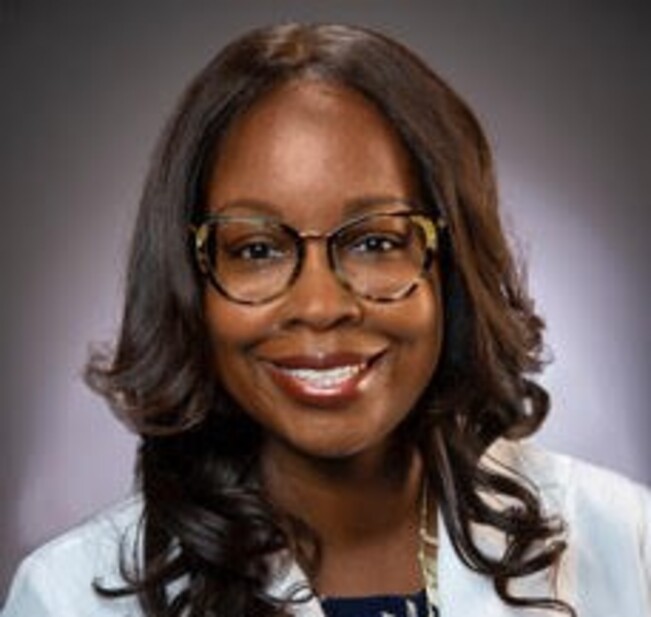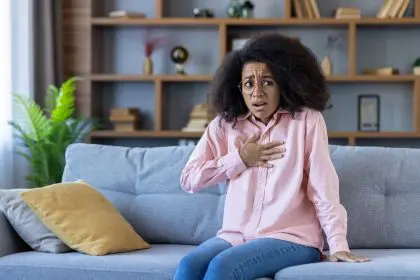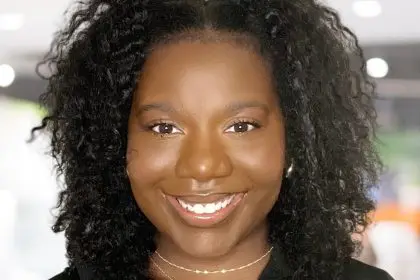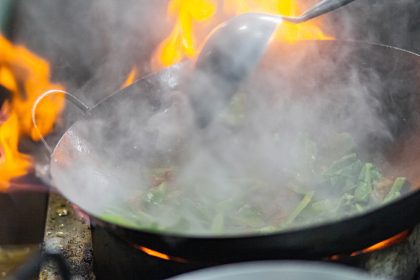Dr. April McDonald stands among only a handful of Black women practicing interventional pulmonology in the United States. The Board-Certified Interventional Pulmonologist at Northeast Georgia Medical Center transformed her childhood dream of becoming a surgeon into a mission to diagnose lung cancer earlier and save more lives. From her biochemistry roots at Spelman College to earning four board certifications, Dr. McDonald’s journey exemplifies how perseverance and purpose can break barriers in medicine’s most specialized fields.
What were the three biggest turning points that shaped your path to pulmonology?
I initially thought I was going to be a surgeon, a cardiothoracic surgeon is what I told myself from the age of eight. When I started my path going from college to medical school, that was the journey that I thought that I was on. I had a lot of various mentors that said be open, be receptive to other opportunities.
But I was very much focused on that one thing. The thing that happened was the challenges within medical school that I faced. I found in my surgical rotations, it wasn’t the profession that I liked the most. I had to be very in tune to myself and what I was feeling and then start becoming open to the other possibilities. I found that it was actually the hands-on things that I was doing there. The acuity of the patients, their pathology and their pathophysiology. As time went on, I was able to then figure out and find critical care. Later on, interventional pulmonology really brought it full circle.
What made you choose lung health specifically, interventional pulmonology over other specialties?
The interventional pulmonology came about when I was in Memphis. I was training in pulmonary critical care at that point, and what I recognized there was that we were diagnosing lung cancer way too late.
By the time people were showing up with symptoms, they were already stage three, stage four, late stage lung cancers. We were having conversations, not of treatment or hope and cure, we were having conversations of you’re about to embark upon this road of chemotherapy, radiation therapy, or even having conversations of this is so far advanced, we need to be thinking about hospice. I felt that there was something more that could be offered.
There should be something else that I could do to help people. Finding these lung cancers earlier, to then get them to treatment earlier so that we can have more hopeful conversations. For those who are diagnosed with lung cancer that is late, there are tumors that are involving the airway, having an opportunity to still do something about it in the way of intervening, opening up those airways to then help them to breathe better, to then be able to get to their treatments or if they choose at least get home to their family.
Can the lungs really heal themselves?
Smoking is hard, in the way that once people start smoking, it’s very hard to quit. But what I tell my patients is that you absolutely can do it. It doesn’t matter if you’ve been smoking for 10 years or 50 years. I have patients along that gamut who have done it and you too can as well.
The main thing is just having the mindset of wanting to do so. In regards to the lungs healing, some people, when they’re long time smokers will have structural changes to the lungs, we call it emphysema. Sometimes people will have functional changes. Those changes to their lungs that more of that COPD or chronic obstructive pulmonary disease realm.
Regardless of where you are along that spectrum, what we do know and what, empirically, patients will say is that when I stop smoking, I feel better, I feel like I can breathe better. It’s because smoking causes this inflammatory thing to happen to the lungs. So that inflammation then brings in mucus that then feels like the airways are clogged. By virtue of taking away that inciting thing, which is smoking, helps to open up those airways. People are breathing better, you’re feeling like you’re having a more quality life.
You’re board certified in four areas. What are two traits or habits that help you thrive in such a demanding environment?
I would say perseverance and the ability to pivot. There’s a level of perseverance and resilience that you just have to have within, and this is for anyone in any field, to achieve your goals. You’re certainly going to always come against obstacles in so many different ways, and so that ability to persevere is super important.
Then the ability to pivot, everything is not going to always be straightforward. My journey was not straightforward and yet my ability to pivot and have a deep level of introspection to really then get to the goal and to my mission and what my true purpose was and is. I think those are the things that have helped guide me.
As a Black woman, what were two barriers that you faced in medical training that others might not have seen?
During that transition that I mentioned earlier in regards to trying to find what was going to be my true route, what I recognize is that sometimes people in places and in spaces who should be your advocate are not, and will sometimes tell you things that will dissuade you from your path. I recall we had counselors who were supposed to be our advisors in medical school. And that person asking me when I started having challenges within med school, was that really for me?
If you’ll remember, I said at eight years old, medicine is for me. This is my path, this is my purpose, this is what I’m going to do. Yet that person wanted to then instill doubt within me, and really asked, is this the profession for you? Just because I was having challenges at that time.
Recognizing that challenges are there because they’re trying to teach you something. An early lesson that I learned was that sometimes people in positions that should be helpful to you are just not. Ignore those, ignore the noise in those times.
How did attending Spelman prepare you to lead and stand tall in majority white medical spaces?
Spelman was one of the best decisions that I ever made. It gave me a sense of self. Being there and training there gave me a sense of my voice, even when it’s taken time, because I’m, by nature, very introverted and a little bit quiet, but it still provided me my voice and recognizing my self worth. When I did encounter challenges or in spaces where I looked to my left and looked to my right and saw people who looked like me, I still knew exactly who I am. I could still own those spaces. I still had a presence and a voice and I made sure that I delivered that in any of those spaces. That’s what Spelman did for me.
What was the hardest moment during your training and what kept you going?
I would say the hardest moment for me was this idea of having to change paths. At that point in time, as far as my development things always seem to come easy, the path just was very straightforward. So it was a challenge for me to feel as if in some ways when I gave up the idea of becoming a surgeon, that was the challenge for me in a lot of ways.
Starting to feel like, okay, now what’s next? Is this really still for me? A lot of us who are either within the pathway of medicine or physicians, this idea of being very focused, very task driven, aligns when we do undergo those changes in time of pivoting. Sometimes it can feel like you failed. So having to really understand that those are not failures, and I’m faith-based, so I feel those are the moments that God is trying to move you elsewhere and move you to where you really need to be. As I look at it retrospectively, those times were building me to where I am today.
What message would you give to young women of color who don’t see many doctors who look like them in specialties like yours?
There are only a few interventional pulmonology black women here in this country. But if you want to do interventional pulmonology, if you want to be a surgeon, if you want to do whatever it is that you want to do, just know it doesn’t matter if you are number 5000 or number one, you can do it. You can absolutely do it. You don’t have to have anyone who went before you, before you embark upon that journey. Ignore the noise around you, all the doubt that’s within you, the doubt from those around you who say that you can’t do it because it’s never been done, you absolutely can do it. That’s my message. Go for it.
















